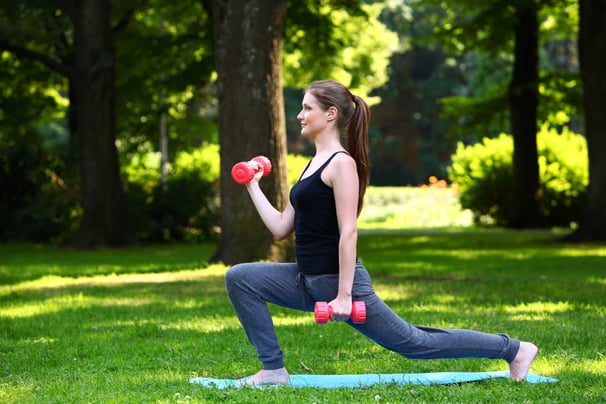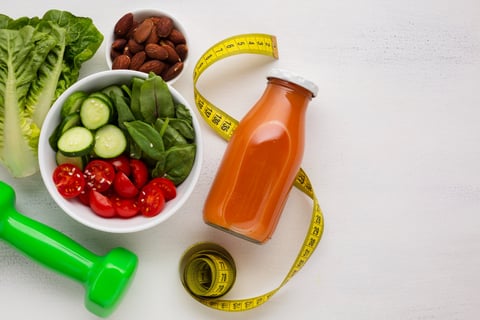Top Tips for Maintaining Health and Vitality as You Age
HEALTH
How to Maintain Health and Vitality as You Age: Expert Tips and Comprehensive Guide
This blog post is your guide to maintaining health and vitality as you age, covering essential tips like proper nutrition, exercise, mental wellness, and lifestyle habits. Discover how small changes can lead to a healthier, more fulfilling life and improved longevity.



Regular physical activity can add up to 5 years to your life.


In This Article
Introduction: Why Focus on Health and Vitality as You Age?
As we grow older, maintaining health and vitality becomes increasingly important for ensuring a high quality of life. Aging is a natural process, but the way we age can be significantly influenced by our lifestyle choices. In this comprehensive guide, we’ll explore the best tips on maintaining health and vitality as you age, blending expert advice with actionable strategies that will help you thrive, no matter your age.
Aging is inevitable, but how you age can largely be determined by your daily habits. Maintaining health and vitality as you age not only improves your longevity but also ensures you enjoy life with less pain, more energy, and a higher quality of life. With the right mindset and practices, you can add years to your life while feeling your best.


Credits: Image by Freepik
Prioritize a Nutrient-Dense Diet


What you eat significantly impacts how you age. A nutrient-dense diet is rich in vitamins, minerals, and antioxidants that protect your body from chronic diseases and the oxidative stress that contributes to aging. Focus on consuming whole foods such as fruits, vegetables, whole grains, lean proteins, and healthy fats.
Leafy Greens: Packed with antioxidants, they protect your cells from damage.
Berries: Rich in fiber and vitamins, they boost your immune system and improve brain function.
Salmon and Fatty Fish: High in Omega-3 fatty acids, which reduce inflammation and promote heart health.
Nuts and Seeds: Offer healthy fats that support brain health and improve cardiovascular function.
Probiotic-rich foods: Yogurt, kefir, and sauerkraut improve gut health, which is essential for overall well-being.
While whole foods are key, supplements like Vitamin D, calcium, Omega-3s, and magnesium can help fill nutritional gaps.
Stay Physically Active
Credits: Image by KamranAydinov on Freepik


The benefits include:
Regular exercise plays a crucial role in maintaining muscle mass, bone density, balance, and flexibility as you age. It also promotes cardiovascular health, enhances mood, and keeps cognitive functions sharp.
Strength Training: Improves muscle mass and bone health, reducing the risk of osteoporosis.
Cardio Workouts: Walking, cycling, and swimming keep your heart healthy and improve endurance.
Flexibility Exercises: Yoga and stretching help maintain range of motion and prevent stiffness.
Balance Workouts: Tai Chi and Pilates improve coordination and reduce the risk of falls.
Mental Wellness and Cognitive Health
As we age, it’s normal to experience some decline in cognitive function. However, lifestyle choices can significantly delay or even prevent cognitive deterioration.
Stay Mentally Active: Engage in puzzles, reading, learning new skills, or playing musical instruments.
Mindfulness and Meditation: Regular mindfulness practices improve focus, reduce stress, and enhance overall mental clarity.
Maintain Social Connections: Interacting with friends and family stimulates cognitive function and boosts emotional well-being.


Credits: Image by Freepik
Importance of Quality Sleep


Credits: Image by gpointstudio on Freepik
Getting enough quality sleep is crucial for aging well. Sleep helps restore the body, improve memory, and regulate mood.
Establish a Routine: Go to bed and wake up at the same time every day.
Create a Relaxing Environment: Keep your bedroom cool, dark, and free from distractions.
Limit Stimulants: Avoid caffeine, alcohol, and heavy meals close to bedtime.
Regular Health Check-Ups and Screenings


Credits: Image by Freepik
As you age, regular medical check-ups become essential for early detection of conditions like hypertension, diabetes, and osteoporosis.
Blood Pressure Monitoring
Cholesterol Testing
Bone Density Scans
Cancer Screenings: Such as mammograms, colonoscopies, and prostate exams.
Eye and Hearing Tests
Medical check-ups like:
Hydration: The Forgotten Key to Longevity


Credits: Image by Freepik
Dehydration is a common issue among older adults and can lead to fatigue, confusion, and even serious complications. Ensure you're drinking enough water throughout the day.
Drink Water Regularly: Aim for 8-10 glasses daily.
Eat Hydrating Foods: Cucumbers, watermelon, and celery can contribute to your daily water intake.
Monitor Urine Color: A pale yellow color indicates adequate hydration.
Social Engagement and Building Strong Relationships


Credits: Image by Freepik
Staying socially active is crucial for emotional health and longevity. Isolation can lead to depression, anxiety, and cognitive decline.
Join Community Groups: Participate in activities that interest you, such as gardening, book clubs, or fitness classes.
Stay in Touch: Regularly call or visit friends and family members.
Volunteer: Helping others can improve your sense of purpose and well-being.
Managing Stress and Emotional Health


Credits: Image by Freepik
Chronic stress accelerates the aging process and weakens your immune system. Learning to manage stress is essential for maintaining mental and physical health.
Meditation and Deep Breathing: These practices help lower blood pressure and reduce anxiety.
Physical Activity: Regular exercise helps reduce stress hormones like cortisol.
Hobbies and Relaxation: Engage in activities you love, such as reading, gardening, or painting.
Developing a Healthy Routine and Sticking to It


Credits: Image by rawpixel.com on Freepik
Consistency is key to maintaining health as you age. Develop daily routines that incorporate healthy eating, physical activity, and mental wellness practices.
• Start Small: Focus on one change at a time, like drinking more water or walking daily.
• Set Realistic Goals: Break your goals into manageable steps.
• Track Progress: Use a journal or app to track habits like sleep, exercise, or water intake.
Embrace Lifelong Learning and Hobbies
Engaging in new hobbies and learning new things can keep your mind sharp and enhance your quality of life. Whether it's painting, knitting, or learning a new language, lifelong learning is vital for mental vitality.
Boosts Mental Health: Hobbies provide a sense of purpose and achievement.
Increases Social Interaction: Many hobbies are group activities, which can help you stay connected.
Wrapping It Up: Aging Gracefully with Vitality
Aging is a natural part of life, but how you choose to age is within your control. By adopting a nutrient-rich diet, staying active, prioritizing mental health, and developing healthy routines, you can maintain vitality and enjoy a high quality of life well into your senior years. The tips in this guide are practical steps to take control of your health and ensure that you live your golden years to the fullest.

